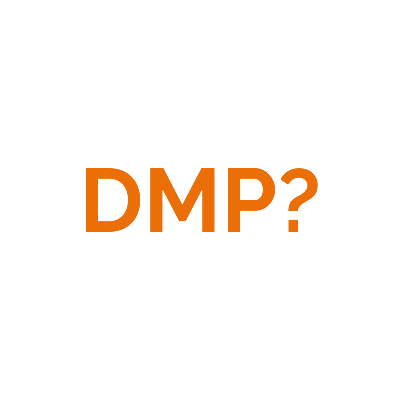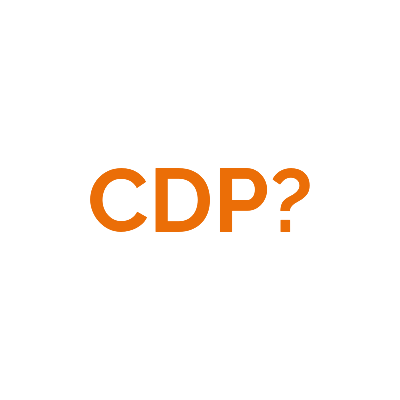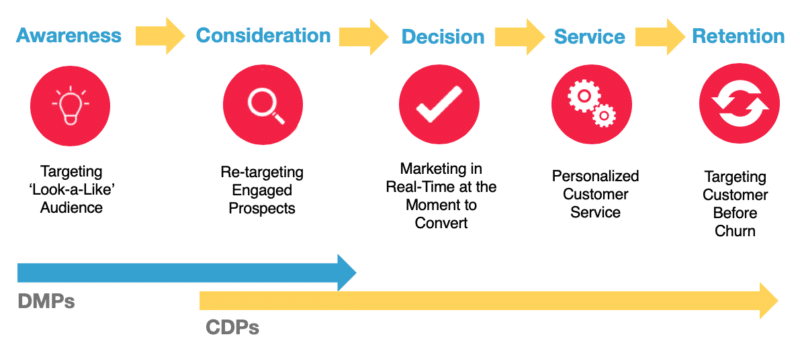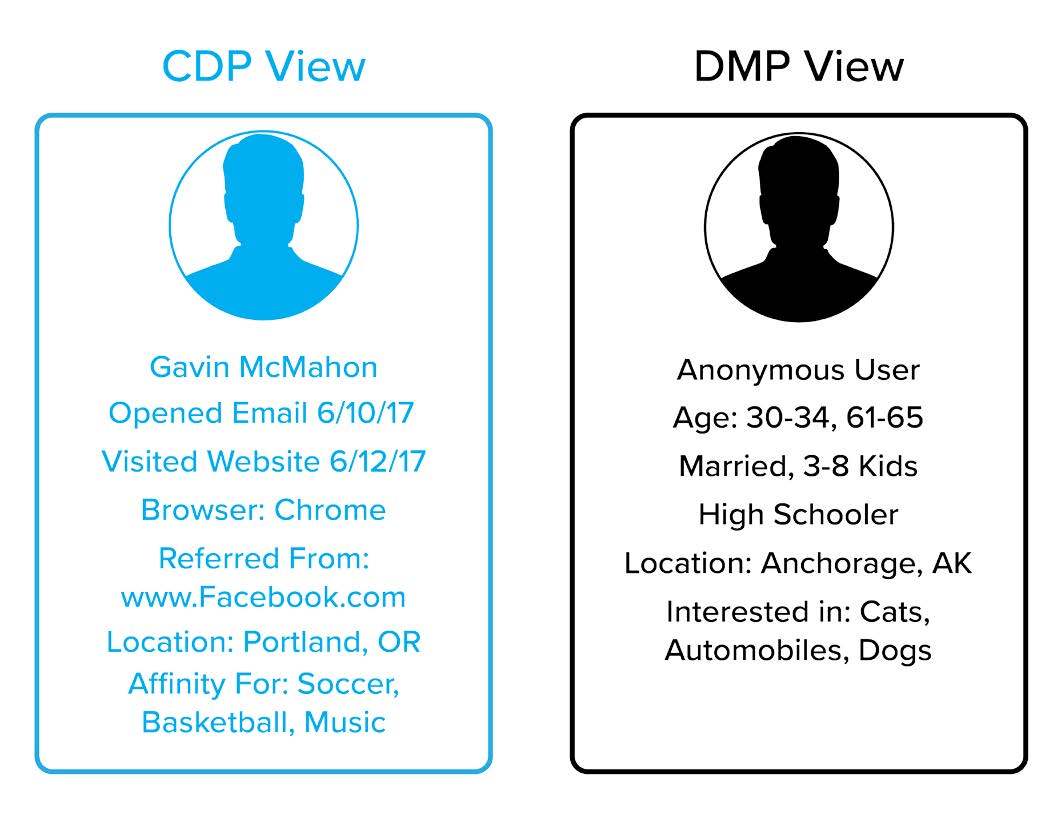What is a CDP or DMP?
You might open this article wondering what a CDP and DMP stands for. This is what you need to know:
 Data Management Platform (DMP)
Data Management Platform (DMP)
The first objective of a Marketeer is to reach leads with a relevant – and personalized – message. We don’t always know our leads (e.g. no known email) thus we need to lure them in using advertising. To personalize advertising, a Data Management Platform (DMP) is the tool allowing us to use cookies to identify our web & app visitors on other websites.
Use-case: “Let’s show everyone who has been twice on our website a banner with ‘Please visit again’”.
Click here to read more on Data Management Platforms.

Customer Data Platform (CDP)
On the other hand, marketeers want to engage and cross-sell to their existing customers. These customers are known (i.e., known email and name) thus you can use unpaid channels such as mail, chatbots or website personalization to interact. To have a unified message across all channels a CDP helps us centralize all data in real-time into a unique profile and orchestrate all marketing execution channels
Use-case: “Let’s customize our homepage for people whose birthday it is this month”
Click here to read more on Customer Data Platforms.
Do I need a DMP or CDP?
Although in many instances CDP and DMP complement each other, if you are primarily looking for targeted advertising, a DMP is the suitable platform. However, for nurturing customer engagement and personalization, you need a CDP. In a future-proof modern marketing stack you will likely need both.

A DMP supports lead-generation, a CDP helps boost conversion and retention.
What do a DMP & CDP-platform have in common?
DMPs and CDPs are much alike and clearly have overlapping functionalities:
- Both CDP’s and DMP’s are digital tools which track website and app behavior of your visitors.
- Both tools allow to link online behavior with first party data sources such as CRM
- Both tools are marketing tools: easy to use tools which offer point-and-click interfaces to get insights into website visitors and build audiences.
Their overlap is normal as they originated from two different backgrounds. We are convinced that in the next few years, platform acquisitions will take these overlaps away and offer single-stack platform supporting both CDP and DMP functionalities.
When choosing your platform, we recommend to think ahead about your use-cases. If any advertising is involved, don’t forget that you’ll need DMP functionalities.
How many companies are using a DMP and CDP?
DMPs are commonly used. In Belgium, all agencies and major advertisers are using a DMP to do targeted advertising.
CDP is new name for something which exists already quite some time. People called it “360° perspective” of “360° customer DNA”. Practically, it’s often a data-warehouse or Big Data Platform where customer data is combined providing a 360° view on their customers. Big companies today have such a Big Data Platform to now build audiences using SQL or Python, then pushing those IDs to their Marketing Automation Platform to orchestrate and execute personalized marketing.
CDP software is quite new and we expect CDP software to replace custom-built set-ups in the next years. Similarly, we expect CDPs and DMP platforms to merge more and more and Marketing Cloud vendors to soon offer an integrated CDP and DMP platform.
Read more on Adobe’s offering in CDP and DMP.
What’s the difference between a DMP & CDP-platform?

a CDP holds personal information vs. a DMP holds anonymous information relevant for advertising
CDPs focus on known individuals, storing “personally identifiable information” including names, email addresses and phone numbers. A CDP tracks your own website and links it with your offline data in a unified 360° perspective. A CDP guarantees you can identify your visitor on your own website.
DMPs focus mostly on anonymous identification incl. cookies, devices, and IP addresses to identify and match users. They typically don’t store personal information so no names, no emails and no exact addresses. A DMP track all digital (web) data including your website but also your ads shown elsewhere. A DMP guarantees you can identify your visitor on another website.
Here are some different differences to consider in deciding if you need a CDP or DMP:
- DMPs store anonymous user profiles - no personal information!
<-> CDP focuses on individual profiles and gathers for each customer contextual, demographic and transactional data - DMPs focus on audiences and not 1-to-1 communication
<-> CDP are focused on the individual. CDPs are aimed to really personalize communication 1-to-1 in emails, website bannering, chatbots, etc. - DMPs focus on advertising; they are made to integrate with ad-servers, DSP, SSP, etc.
<-> CDPs can’t integrate well directly with AdTech tools yet focus on MarTech tools such as emailing, chatbots, call centers, etc. - DMPs cannot perform advanced identity matching – e.g. 2 users living on same address
<-> CDPs can, they run user matching on various levels (mail, IDs) - DMPs typically store data for maximum 90 days.
<-> CDP gets raw data and builds historical information on it - DMPs aren't meant to store everything. They focus on target-relevant information: age, gender, LoR, frequency of purchase and not e.g. individual product transactions
<-> CDP can handle unlimited volumes and types of data. They are meant to have a full perspective on customers
Talk with our experts
element61 has experts in DMP and CDPs technology and adoption. We can help outline their potential as well as the fit with your business. Contact us to help you get started in your data-driven marketing journey.
